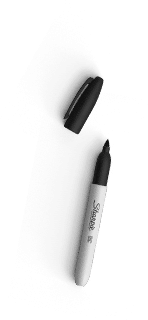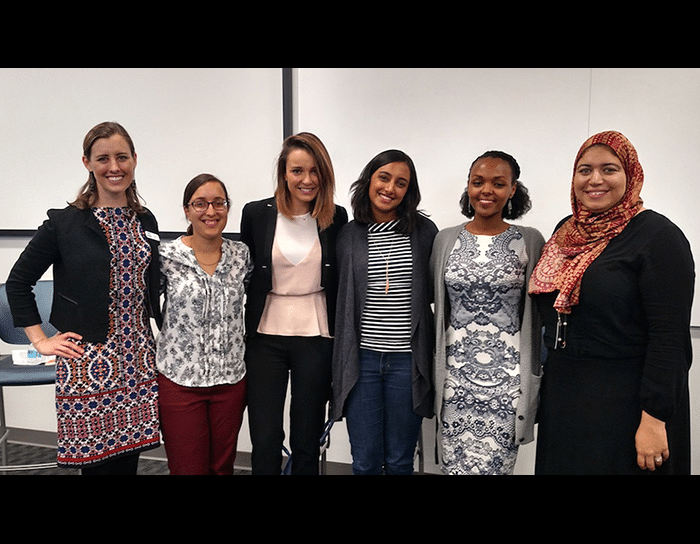I recently spoke on the annual Women’s Business/Women in Analytics Panel for the Institute for Advanced Analytics at NC State University. IAA is an elite graduate program focusing on data science and data analytics, and the panel provided a chance for students to discuss some of the issues women that face in the business world.
The students’ questions were excellent. But even better was the audience itself—because it included all the students. In other words, the male graduate students came too. They asked questions, shared ideas, and, most importantly, listened.
After the panel, a number of students reached out on LinkedIn; again, both female and male students. Many of the male students wrote in their messages that the panel raised issues they hadn’t known about. Others wrote that, while they had known about some of the issues, the panel helped them understand their role and how they can help.
I can’t tell you how often I’ve participated in events like this one that were by women, for women, with women. And that’s amazing—we need those events. They often create a safe and supportive place, one that inspires actionable messaging and support.
But in this instance, the dialogue and the effects were strengthened by the attendance of both men and women. By attending the event, the male students had an opportunity to hear other women’s stories and to learn about practical ways they could help. And the women had an opportunity to explain how they’ve been affected by situations that the men might have been unaware of (or unaware of how they could be advocates in those situations). What an incredible way to inspire real change.
So What Can Men Do? The “Amplify” Strategy
My favorite takeaway was from one of the students in attendance. Her comment was in response to one of the issues the panel discussed: that women are often ignored, undervalued, or unheard during meetings. There’s research that shows this is often unintentional or unconscious, but it happens nonetheless. Here’s research to back it up:
- Men speak more in meetings than women (one study found a 75% male/25% female average): http://www.dailymail.co.uk/sciencetech/article-2205502/The-great-gender-debate-Men-dominate-75-conversation-conference-meetings-study-suggests.html
- Even when women speak less they are perceived to have spoken more: http://pubman.mpdl.mpg.de/pubman/item/escidoc:68785:7/component/escidoc:506904/Cutler_1990_Speaker+sex.pdf
- Male executives who speak more often than their peers are deemed more competent (by 10%), while female executives who speak up are considered less (14% less): http://asq.sagepub.com/content/56/4/622.short
- Unconscious biases and prejudices affect how we interpret women’s ideas: http://www.nytimes.com/2014/09/25/technology/exposing-hidden-biases-at-google-to-improve-diversity.html
- Women are interrupted more than men: http://www.newrepublic.com/article/117757/gender-language-differences-women-get-interrupted-more
The student who spoke up shared that she actively looks for ways to amplify her coworkers’ voices, especially if she sees a colleague who’s (1) in the minority within the meeting (a female colleague, African American colleague, or Hispanic colleague, most often, but it varies) and (2) struggling to be heard. When she notices that, her focus becomes advocating for that team member in the meeting.
For example, if she notices that a coworker is trying to explain an idea but that people aren’t listening or are reframing the coworker’s idea as their idea, then she steps in and helps to acknowledge the coworker trying to speak.
And during our panel discussion, this student pointed out that the “amplify” strategy is a great way to help not only women but also other minority groups. (And thank goodness she brought that up; the challenges women face are complex, but white women don’t experience them the same way that African American or Hispanic women do; this strategy can help women and men lift up women and minorities.)
This “amplify” strategy is an incredible way for men to help. Simply by becoming aware of these issues and then learning to amplify in meetings, men can advocate for female and minority colleagues at work. It’s as easy as stepping in to say, “Hey, before we move on, let’s let Jamie finish her thought” or “So I want to repeat what I heard Desiree say, because I think what you’re saying matches the idea she was explaining a few minutes ago.” It’s not rephrasing, and it’s not placing blame on anyone for how the conversation has moved—it’s just amplifying.
And you know what’s incredible? The “amplify” strategy makes you look good, too. Research shows that giving others’ credit actually makes you look good!
Now What?
After the panel event, IAA master’s student Liping Wu spoke to the panel and to the student audience. She discussed her own challenges with some of the issues that the panel had discussed, and she pitched an idea to her fellow classmates: a book club that would read Lean In together and would meet to discuss. In her eloquent speech, she asked both female and male students to consider attending.
Ms. Wu emailed me a few weeks later to let me know that the MSA Lean In book club had held its first discussion. They covered first two chapters of Lean In, talked about the complex challenges women face (the leadership ambition gap, how gender stereotypes can be internalized by women, gender stereotypes that are obstacles for growth, etc.), and discussed the common “imposter syndrome” challenge.
One of the most amazing things about their book club? They had 46 people attend, including 17 male students.
I asked Ms. Wu if she’d share her thoughts on this, and she wrote back about the impact of the group for both female and male participants:
“By talking about this problem in a small, close group, the female students felt they were not alone, and we could be stronger bonded with each other and supportive to each other. Our male classmates, they might have join the discussion to be supportive, but it turned out they were also inspired and encouraged.
One mentioned that men are also restricted by the stereotype of being strong and tough, and that showing emotions and weakness would cause very negative perception for men. More stated they also need to be more confident facing their own challenges and fear.” — Ms. Wu
It’s amazing to hear that the male attendees were not only engaged. But for me, it’s even more inspiring to hear that the men were comfortable talking about their experiences with gender stereotypes too. Ms. Wu agrees:
“This is so encouraging, because it is not just about helping women to thrive, but also about being supportive to each other, to become a better self.
We can do this, partly because of the way Sheryl Sandburg wrote this book (that it inspires women as well as men) and partly because we have wonderful classmates here in the Institute. All these make me feel so optimistic of a more equal future.” — Ms. Wu
Congratulations to Ms. Wu and to the female and male students participating in the book club. I look forward to hearing more of their takeaways as they continue to explore these topics.
“We cannot change what we are not aware of, and once we are aware, we cannot help but change.”
― Sheryl Sandberg, Lean In: Women, Work, and the Will to Lead




























